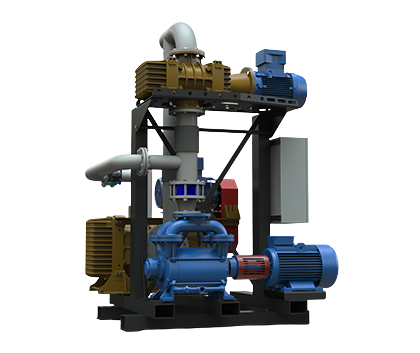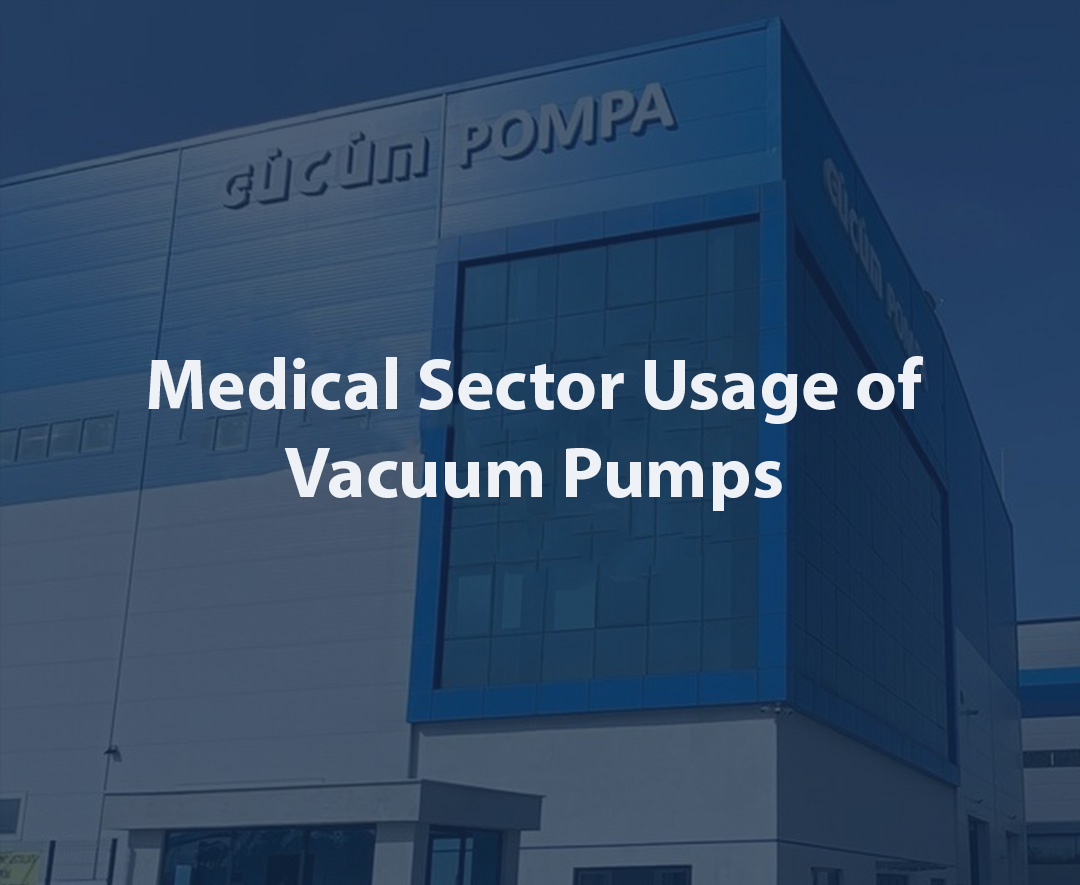The Use of Vacuum Pumps in the Medical Sector
Contents
What is the Fundamental Role of Vacuum Pumps in the Medical Sector?
How Are Vacuum Pumps Used in Medical Devices and Laboratory Applications?
What Role Do Vacuum Pumps Play in the Production of Medical Devices?
What Are the Advantages of Medical Vacuum Pumps in the Healthcare Sector?
How Are Vacuum Pumps Used in Medical Laboratories for Experimentation and Testing?
The Importance and Application Areas of Vacuum Pumps in Surgical Procedures.
Tips for Maintenance and Safe Use of Medical Vacuum Pumps.
Contribution of Vacuum Pumps to Innovation and Developments in the Medical Secto
What is the Fundamental Role of Vacuum Pumps in the Medical Sector?
In the medical sector, vacuum pumps play a fundamental role in various medical applications. These pumps are used across a wide range of processes in healthcare, from surgical operations to laboratory tests, optimizing many procedures in the healthcare sector.
The primary role of vacuum pumps is to facilitate more effective surgical procedures by controlling blood and other fluids during surgery. Additionally, in medical laboratories, vacuum pumps are used in experiments and tests to create precise environments. Particularly in fields like microbiology, genetic research, and biochemistry, vacuum pumps play a significant role in processes such as cell culture, filtration, and other laboratory procedures.
The common use of vacuum pumps in the manufacturing of medical devices is also widespread. These pumps contribute to the production and processing of materials used in medical devices, enhancing quality and precision.
The key advantages of vacuum pumps in the medical sector include reliability, controllability, and versatility in various application areas. These pumps have become essential tools, providing healthcare professionals and researchers with the ability to achieve reliable results in delicate processes.
How Are Vacuum Pumps Used in Medical Devices and Laboratory Applications?
Vacuum pumps find a wide range of applications in medical devices and laboratory practices. These pumps are commonly used to perform crucial tasks in the healthcare sector and research laboratories.
In medical devices, vacuum pumps are frequently present in surgical aspirators, dialysis machines, autoanalyzers, and similar medical equipment. They are utilized to control and direct the absorption of blood, body fluids, or other substances during surgical operations and medical procedures, playing a crucial role.
In laboratory applications, vacuum pumps are used in various processes in chemistry, biology, microbiology, and other fields. Filtration, distillation, concentration, and vacuum drying are common applications of vacuum pumps in laboratory settings. Moreover, in cell culture studies and genetic research, vacuum pumps assist in creating controlled environments.
The advantages of using vacuum pumps in medical devices and laboratory applications include precise control, reliable performance, and suitability for various application areas. These pumps enable healthcare professionals and researchers to achieve more effective and reliable results in medical procedures and scientific studies.
What Role Do Vacuum Pumps Play in the Production of Medical Devices?
Vacuum pumps play a critical role in the production processes of medical devices, being utilized in various applications. These pumps are essential for improving product quality, maintaining hygiene standards, and performing fundamental functions in the manufacturing of various medical devices.
In the production of medical devices, vacuum pumps are involved in processes such as material transfer, mold shaping, packaging, and sterilization. For example, vacuum is used during the plastic injection molding process in the production of many medical devices, ensuring proper material placement and contributing to the quality and standards of the products.
Additionally, vacuum pumps are employed during the packaging of medical devices to remove air from packaging materials, ensuring the extended shelf life of the products. In sterilization processes, vacuum pumps assist in eliminating microorganisms from devices.
The role of vacuum pumps in the production of medical devices stands out due to precise control, reliability, and compliance with high-quality standards. These pumps are considered crucial components for meeting the hygiene requirements of the industry and producing reliable and durable medical devices.
What Are the Advantages of Medical Vacuum Pumps in the Healthcare Sector?
Medical vacuum pumps offer several advantages in the healthcare sector, playing a critical role in various applications and procedures. These pumps are considered fundamental components in various medical devices and processes used in healthcare facilities. Here are the advantages of medical vacuum pumps in the healthcare sector:
Surgical Assistance
During surgical interventions, medical vacuum pumps effectively extract blood and other fluids, ensuring a clean and visible surgical area. This facilitates clearer visibility for surgeons, enhancing the safety and effectiveness of procedures.
Vacuum-Assisted Delivery
Obstetric applications involve the use of vacuum pumps in vacuum-assisted delivery methods, aiding in directing the birthing process and supporting childbirth.
Wound Care and Cleansing
Medical vacuum pumps are effectively used in wound care. Their ability to draw fluids from wounds creates a clean healing environment, reducing the risk of infection.
Diagnostic Imaging
In certain diagnostic procedures such as breast biopsy, medical vacuum pumps are used to collect tissue samples, allowing for the precise and reliable collection of tissue samples.
Hospital Hygiene
Medical vacuum pumps contribute to maintaining general hygiene standards in surgical areas and hospitals by effectively removing liquids, ensuring a clean and safe working environment.
Anesthesia Applications
During anesthesia, medical vacuum pumps are used to clear the respiratory system and support the patient's respiratory functions.
These advantages enhance functionality in hospital environments, providing healthcare professionals with safer and more effective treatment options.

How Are Vacuum Pumps Used in Medical Laboratories for Experimentation and Testing?
In medical laboratories, vacuum pumps play a critical role in experimentation and testing processes, contributing to the precision and controllability of laboratory work. These pumps are utilized in various essential applications, making laboratory studies more reliable and producing accurate results.
The typical uses of vacuum pumps in medical laboratories include:
Filtration and Separation
Vacuum pumps are used for filtering and separating liquids or solutions, ensuring the preparation of cleaned samples for analysis in laboratory studies.
Vacuum Drying
In some laboratory processes, materials may need to be dried under vacuum. Vacuum pumps enable quick and effective drying of materials in such processes.
Chemical Experiments and Reactions
Vacuum pumps are involved in the preparation and processing of materials used in chemical reactions in laboratories, ensuring more controllable experiments.
Vacuum Aspiration and Transfer
Vacuum pumps are used when drawing and transferring samples under vacuum in laboratories, allowing for the safe transportation and processing of samples.
Concentration Processes
Vacuum pumps are employed to concentrate liquids in samples, producing more concentrated samples for analysis.
Bioanalytical Applications
In medical and biological laboratories, vacuum pumps are used in processing, storing, and analyzing biological samples.
Vacuum pumps enhance laboratory processes, making them more efficient, saving time, and improving the accuracy of analytical results. Therefore, regular maintenance and effective use of vacuum pumps are crucial in medical laboratories to achieve reliable and reproducible experimental results.

The Importance and Application Areas of Vacuum Pumps in Surgical Procedures
In surgical procedures, vacuum pumps play several crucial roles, contributing to the successful execution of surgeries. These pumps are considered critical components, ensuring the reliable and effective operation of medical devices used in surgery.
Significant application areas of vacuum pumps in surgical procedures include:
Aspiration and Cleaning
Vacuum pumps are used to aspirate and clean fluids and tissue residues during surgery. This ensures a clear surgical field, allowing surgeons to operate with precision.
Suction Operations
Vacuum pumps perform the function of suction in surgical field systems, effectively removing and disposing of liquids. This enhances control within the surgical field.
Wound Care and Drainage
Post-surgery, vacuum pumps are employed to control and drain fluids and waste from wounds. This process contributes to accelerated wound healing and reduced infection risk.
Liposuction and Plastic Surgery
In aesthetic surgical procedures, vacuum pumps are utilized in procedures such as liposuction and tissue transfer, aiding surgeons in achieving the desired outcome.
Vacuum-Assisted Delivery (VAD)
In obstetric practices, vacuum pumps assist in the extraction of the fetal head during delivery, facilitating the birthing process.
Thoracic Drainage
To prevent the accumulation of air or fluid after surgical interventions, vacuum pumps are used in thoracic drainage, improving respiratory functions.
Vacuum pumps in surgical procedures provide hygiene and efficiency, aid in cleaning interstitial tissues, and reduce the risk of complications. Proper use and regular maintenance of vacuum pumps significantly contribute to the successful execution of surgical interventions.
Tips for Maintenance and Safe Use of Medical Vacuum Pumps
The maintenance and safe use of medical vacuum pumps are crucial for providing effective and reliable healthcare services. Here are some tips to consider:
Regular Cleaning and Disinfection
Regular cleaning and disinfection of medical vacuum pumps are essential to ensure infection control. This enhances patient safety and contributes to the longevity of the device.
Filter Inspection and Replacement
Regularly inspecting and replacing filters enhances the performance of the device. Clean filters aid in filtering airborne pathogens.
Correct Accessory Usage
Using the correct accessories designed for medical vacuum pumps is crucial. Incorrect accessories can affect the efficiency of the device and pose safety risks.
Periodic Maintenance Checks
Medical devices should undergo periodic maintenance checks as specified by the manufacturer. These checks help detect potential issues in advance, enhancing the reliability of the device.
Training and Awareness
Healthcare staff should be trained in the correct use and maintenance of medical vacuum pumps. Informed users contribute to the safe and effective use of the device.
Emergency Procedures
Establishing and communicating emergency procedures for medical vacuum pumps is important. Quick and effective intervention during emergencies enhances patient safety.
Safe Power Sources
Uninterrupted power supply or backup batteries ensure the continuous and reliable operation of medical vacuum pumps, minimizing the impact of emergencies.
Patient Data Security
Careful management of patient data stored on the device is crucial for maintaining confidentiality. This ensures patient privacy and compliance with legal regulations.
These tips contribute to the safe and effective use of medical vacuum pumps, supporting the delivery of quality healthcare services.
Contribution of Vacuum Pumps to Innovation and Developments in the Medical Sector
Vacuum pumps make significant contributions to innovation and developments in the medical sector. These technological devices are effectively utilized in various medical applications and healthcare services, raising industry standards.
The contributions of vacuum pumps to the medical sector can be summarized as follows:
Precise Control in Surgical Procedures
Vacuum pumps enable precise control of blood and fluids during surgical procedures, enhancing the accuracy and controllability of surgical interventions.
Utilization in Medical Laboratory Applications
In medical laboratories, vacuum pumps contribute to various experiments and test processes. Particularly in biochemistry, microbiology, and genetic studies, the use of these pumps ensures accurate results.
High Standards in Medical Device Production
Vacuum pumps play a critical role in maintaining high hygiene standards during the production of medical devices. They contribute to the safety and effectiveness of medical devices.
Safe Disposal of Medical Wastes
Vacuum pumps assist in the safe extraction and disposal of medical wastes in hospitals and healthcare facilities, contributing to environmental and public health.
Vacuum-Assisted Minimally Invasive Surgery
Vacuum-assisted procedures in minimally invasive surgeries can shorten patient recovery times and reduce postoperative complications.
Medical Vacuum Therapy
Medical vacuum therapy, using vacuum pumps, plays a crucial role in wound care. This method can accelerate tissue healing and reduce the risk of infection.
The use of vacuum pumps optimizes medical processes, providing safer, more effective, and innovative healthcare services. These technological advancements have the potential to offer healthcare professionals and patients a better treatment experience.
